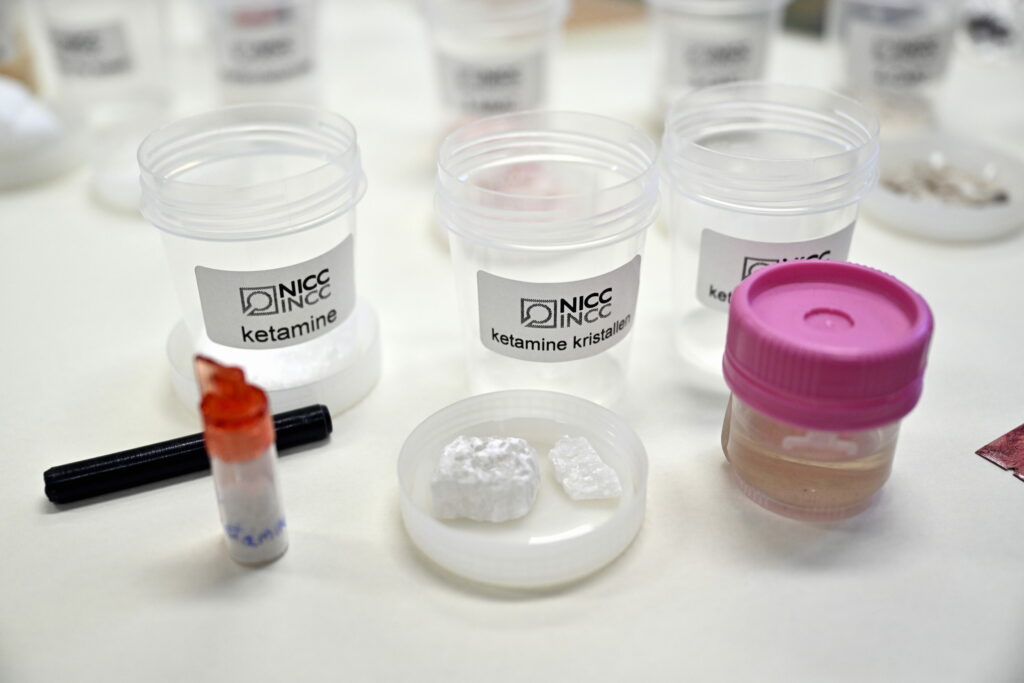People in Belgium are using considerably more ketamine than before, a large-scale study of human waste has confirmed. It also highlighted that the illegal drug is not only consumed in big cities on nights out.
A study by scientists at the University of Antwerp (UAntwerpen) confirmed the use of ketamine is on the rise in Belgium. Ketamine is used as an anaesthetic in hospitals (and in veterinary medicine), but since the 1990s, the substance also emerged as an illegal drug in the nightlife scene. Since then, it has been sold under the names ‘ket’, ‘Special K’, or ‘Vitamin K’.
"In Belgium, an increase in confiscated ketamine and hospital admissions due to excessive ketamine use had been observed for some time," Natan Van Wichelen, a doctoral researcher at the university's Toxicology Centre, said. "That is why we investigated whether this trend was also visible in the wastewater."
Sewage tests are nothing new: during the pandemic, these were used to map the spread of Covid-19, for example. It is also often relied on to test drug use in society. "The big advantage of wastewater is that everyone participates in our research. This allows us to paint a clear picture of the consumption of illegal substances such as ketamine, which is more difficult to map using other methods."
Not just a big city problem
Van Wichelen collected water samples (containing excrement and urine) at wastewater treatment centres at 26 locations throughout Flanders and Brussels between 2020 and 2023. He focused on large cities such as Antwerp and Brussels but also included smaller cities and more rural municipalities.
This study follows similar research carried out by the centre's Professor Alexander van Nuijs, who in 2012 conducted a similar but much smaller-scale study at three locations.
"Compared to 2012, we now found seven to 11 times more of the substance in the sewage water," he noted. "We hadn't expected such large increases. We haven't seen this kind of increase in the use of an illegal drug in our research before."
The results showed the highest concentrations were found in cities and regions close to the Dutch border, but researchers also found significant amounts of ketamine in sewage water in more rural areas. "So the use is widespread."
Related News
- Police seize 27 kilograms of ketamine from private home in Schaerbeek
- Huge rise in drug trafficking: Five-fold increase in cocaine seizures at Brussels Airport
Previous research by the Flemish Expertise Centre for Alcohol and Other Drugs (VAD) showed that the drug is popular among partygoers. This was confirmed by the study: consumption is 58% higher on Saturdays and Sundays than on weekdays. However, a surprising conclusion was that large quantities of ketamine were also found on weekdays.
"Consumption throughout the year is relatively stable. For some exotic drugs, we see huge peaks during holidays or festival periods and then they disappear again, but for ketamine, we can speak of use inside and outside of the party scene."

